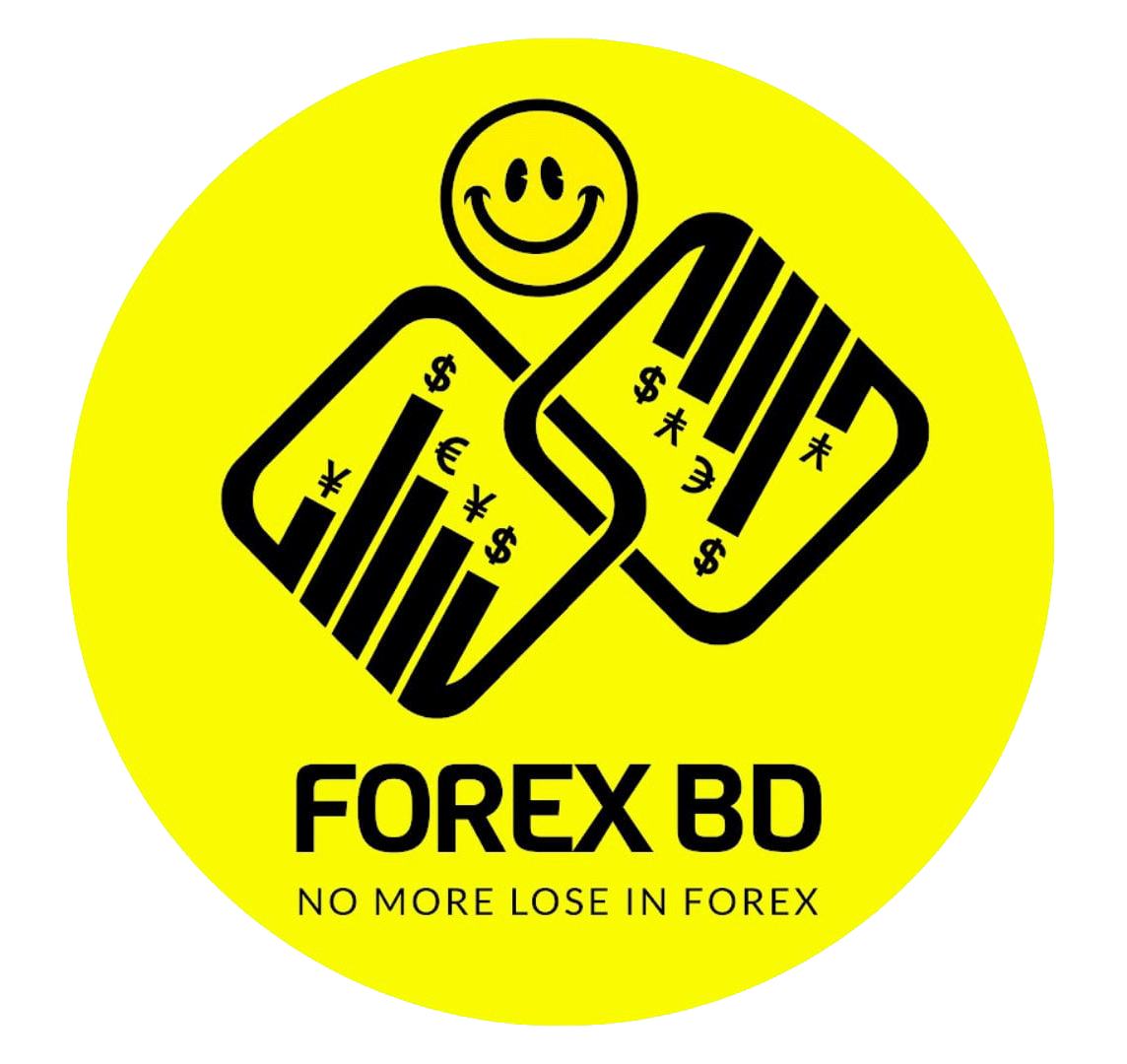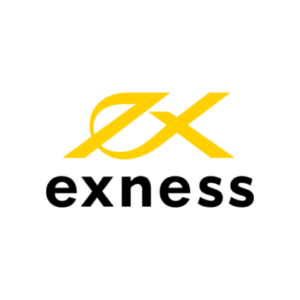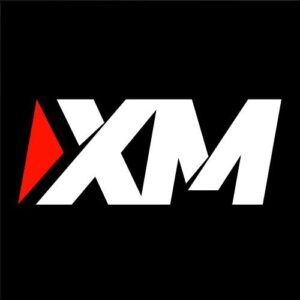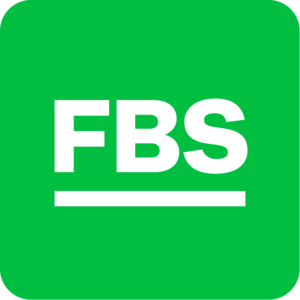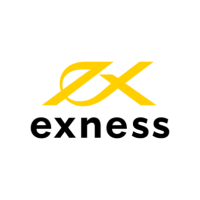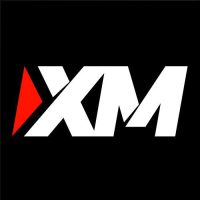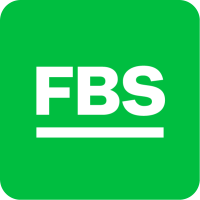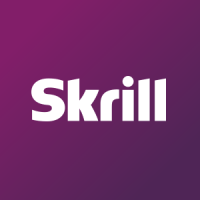Are you new to the world of Forex trading and feeling overwhelmed by the complexity of the markets? Do you want to invest in Forex but lack the necessary knowledge, skills, and experience to make profitable trades? Fortunately, there is a solution for novice traders like you, and that is Forex copy trading. In this article, we will explain what Forex copy trading is, how it works, its benefits, risks, and how you can start copy trading to improve your trading results.
Table of Contents
- Introduction: Why Forex copy trading is popular
- What is Forex copy trading?
- How Forex copy trading works
- Types of Forex copy trading
- Advantages of Forex copy trading
- Risks of Forex copy trading
- Best practices for Forex copy trading
- How to choose the best Forex copy trading platform
- How to create a Forex copy trading account
- How to find profitable Forex copy trading strategies
- How to analyze Forex copy trading performance
- How to manage your Forex copy trading portfolio
- Common mistakes to avoid in Forex copy trading
- Conclusion
- FAQs
Introduction: Why Forex copy trading is popular
Forex trading can be a highly lucrative activity, but it requires significant knowledge, skills, and experience to succeed. Unfortunately, many novice traders lack these essential elements and often end up losing money in the Forex markets. To address this problem, Forex copy trading has emerged as a popular solution that allows traders to copy the trades of successful traders automatically. By doing so, novice traders can benefit from the expertise of experienced traders and improve their trading results without having to learn how to trade Forex themselves.
What is Forex copy trading?
Forex copy trading is a form of social trading that enables traders to automatically copy the trades of other traders. In other words, when you engage in Forex copy trading, you are essentially copying the trading strategies of other traders, either manually or automatically. The idea behind Forex copy trading is that you can benefit from the experience and expertise of successful traders by mimicking their trades, without having to learn how to trade Forex yourself.
How Forex copy trading works
Forex copy trading works by connecting your trading account with that of another trader, who you want to copy. This is done through a Forex copy trading platform, which typically operates as a marketplace where traders can find and copy the trades of other traders. Once you have selected a trader to copy, their trades will be automatically replicated in your account, in real-time.
Types of Forex copy trading
There are two main types of Forex copy trading: manual and automated. Manual Forex copy trading involves manually selecting and copying the trades of other traders. This requires more time and effort on your part, as you have to constantly monitor the markets and execute trades manually. Automated Forex copy trading, on the other hand, involves using software to automatically copy the trades of other traders. This is a more convenient and hands-off approach, as the software will do all the work for you.
Advantages of Forex copy trading
Forex copy trading offers several advantages for novice traders, including:
- Access to expertise: By copying the trades of successful traders, you can benefit from their knowledge and experience, even if you are a novice trader yourself.
- Time-saving: Forex copy trading allows you to automate your trading, which can save you time and effort, especially if you have a busy schedule.
- Diversification: Forex copy trading allows you to diversify your trading portfolio by copying the trades of multiple traders simultaneously.
- Reduced risk: By copying the trades of successful traders, you can reduce your risk of losing money in the Forex markets.
Risks of Forex copy trading
While Forex copy trading offers several benefits, it also carries some risks, including:
- Dependence on the performance of other traders: If the traders you are copying are not performing well, you may also experience losses in your account.
- Technical issues: Forex copy trading relies on technology, which can be prone to glitches, errors, and connectivity issues that may impact your trades.
- High fees: Some Forex copy trading platforms charge high fees and commissions, which can eat into your profits and reduce your overall returns.
- Limited control: When you copy the trades of other traders, you give up some control over your trading decisions, which may not be suitable for all traders.
Best practices for Forex copy trading
To make the most of Forex copy trading, you should follow these best practices:
- Choose reputable traders: Look for traders who have a proven track record of success and a low-risk trading strategy.
- Diversify your portfolio: Copy multiple traders to diversify your trading portfolio and reduce your risk exposure.
- Monitor your performance: Keep track of your performance and adjust your trading strategy as needed.
- Use risk management tools: Set stop-loss orders and other risk management tools to limit your potential losses.
- Keep your expectations realistic: Forex copy trading is not a get-rich-quick scheme and requires patience, discipline, and a long-term perspective.
How to choose the best Forex copy trading platform
To choose the best Forex copy trading platform, consider the following factors:
- Reputation and regulation: Look for platforms that are well-established, reputable, and regulated by a credible authority.
- Range of traders: Look for platforms that offer a wide range of traders to choose from, with different trading styles, risk levels, and performance metrics.
- Fees and commissions: Look for platforms that charge reasonable fees and commissions, and avoid those that have hidden fees or charge high markups.
- Technology and features: Look for platforms that have user-friendly interfaces, advanced trading tools, and features like demo accounts, backtesting, and social trading communities.
- Security and privacy: Look for platforms that use strong encryption, two-factor authentication, and other security measures to protect your personal and financial information.
How to create a Forex copy trading account
To create a Forex copy trading account, follow these steps:
- Choose a Forex copy trading platform that suits your needs and preferences.
- Register for an account and provide your personal and financial information.
- Verify your account by providing the required documents, such as ID and proof of address.
- Fund your account with the minimum required deposit, which varies depending on the platform and the trader you want to copy.
- Select the trader you want to copy and configure your settings, such as the amount to invest per trade and the stop-loss order.
- Start copying the trader’s trades and monitor your performance regularly.
How to find profitable Forex copy trading strategies
To find profitable Forex copy trading strategies, consider the following tips:
- Look for traders with a consistent and positive track record of performance over a long period.
- Analyze the trader’s risk management strategies, such as their use of stop-loss orders and position sizing.
- Consider the trader’s trading style, such as their use of technical analysis, fundamental analysis, or a combination of both.
- Look for traders who trade in a similar market or asset class as you.
- Monitor the trader’s performance regularly and adjust your settings or stop copying if necessary.
How to analyze Forex copy trading performance
To analyze Forex copy trading performance, consider the following metrics:
- Profit and loss: Calculate your overall profit or loss from your copy trading activities.
- Return on investment: Calculate your return on investment (ROI) by dividing your profits by your total investment.
- Drawdown: Calculate your maximum drawdown, which is the maximum loss you have experienced from your copy trading activities.
- Risk-adjusted return: Calculate your risk-adjusted return by dividing your ROI by your maximum drawdown.
- Win rate: Calculate the percentage of winning trades versus losing trades.
- Average trade duration: Calculate the average duration of the trades you have copied.
- Volatility: Calculate the volatility of the trader’s strategy by measuring the standard deviation of their returns.
Name
Details
Rating
Regulation: CySEC, FCA, DFSA, FSCA, FSA, CMA
Founded: 2008
Founders: Petr Valov, Igor Lychagov
Year Founded : 2008
Deposit Methods: VISA, MasterCard, Neteller, Skrill, WM, PM, Crypto (MORE)
Leverage: 1:30 | 1:500
Regulation: CySEC, FCA, DFSA, FSCA, FSA.
Min. Deposit: 5 US$
Min. Withdraw : 5 US$
HQ: Sydney, Australia
Platforms: MT4, MT5, ctrader, web trading
Found in: January 30, 2007
Deposit Methods: Bank Wire (BankTransfer), VISA, MasterCard, Neteller, Skrill, WM, PM, Crypto
Year Founded : 2010
Cryptocurrencies:
 Yes
YesDeposit Methods: Local Deposit, Bank Wire (BankTransfer), VISA, MasterCard, Neteller, Skrill, WM, PM, Crypto, USDT
Year Founded : 2010
Cryptocurrencies: (5+) Bitcoin, Litecoin, Ethereum
Deposit Methods: Local Deposit, Bank Wire (BankTransfer), VISA, MasterCard, Neteller, Skrill, WM, PM, Crypto, USDT (MORE)
Year Founded : 2009
Cryptocurrencies:



Deposit Methods: Bank Wire (BankTransfer/SWIFT), VISA, MasterCard, Alipay, Bitcoin, Bitcoin Cash, Boleto, Ether/Ethereum, Litecoin, Local Bank Deposits, M-Pesa, Mobile Money, Monero, PerfectMoney, Ripple, WebMoney
Year Founded : 2009
Cryptocurrencies:



Deposit Methods: Local Deposit, Bank Wire (BankTransfer), VISA, MasterCard, Neteller, Skrill, WM, PM, Crypto, USDT
Year Founded : 2009
Cryptocurrencies:



Deposit Methods: Bank Wire (BankTransfer/SWIFT), VISA, MasterCard, Alipay, Bitcoin, Bitcoin Cash, Boleto, Ether/Ethereum, Litecoin, Local Bank Deposits, Mobile Money, PerfectMoney, WebMoney, USDT
Year Founded : 2011
Cryptocurrencies: (25+) Bitcoin, Litecoin, Ethereum
Deposit Methods: Bank Deposit, VISA, awepay, Bitcoin, FasaPay, Local Bank Deposits, Local Bank Transfers, Neteller, paytm, Skrill, UnionPay, USDT
Leverage: 1:20 | 1:500
Regulation: CySEC, FCA, DFSA, FSCA, FSA.
Min. Deposit: 50 US$
Min. Withdraw : 50 US$
HQ: Australia, Cyprus, and the UK.
Platforms: MT4, cTrader, web trading
EAs/Robots: ✅ Yes | News Trading: ✅ Yes | Scalping: ✅ Yes
Cryptocurrencies: 20+) Bitcoin, Litecoin, Ethereum
Deposit Methods: Local Deposit, Bank Wire (BankTransfer), VISA, MasterCard, Neteller, Skrill, Crypto. USDT
Leverage: 1:20 | 1:500
Regulation: CySEC, FCA, DFSA, FSCA, FSA.
Min. Deposit: 100 US$
Min. Withdraw : 100 US$
HQ: Cyprus, the UK, Australia, and the United States.
Platforms: MT4, cTrader, web trading
EAs/Robots: ✅ Yes | News Trading: ✅ Yes | Scalping: ✅ Yes
Cryptocurrencies: 20+) Bitcoin, Litecoin, Ethereum
Deposit Methods: Local Deposit, Bank Wire (BankTransfer), VISA, MasterCard, Neteller, Skrill, Crypto. USDT
Leverage: 1:20 | 1:500
Regulation: CySEC, FCA, DFSA, FSCA, FSA.
Min. Deposit: 50 US$
Min. Withdraw : 50 US$
HQ: Australia, Cyprus, and the UK.
Platforms: MT4, cTrader, web trading
EAs/Robots: ✅ Yes | News Trading: ✅ Yes | Scalping: ✅ Yes
Cryptocurrencies: 20+) Bitcoin, Litecoin, Ethereum
Deposit Methods: Local Deposit, Bank Wire (BankTransfer), VISA, MasterCard, Neteller, Skrill, Crypto. USDT
Year Founded : 2010
Cryptocurrencies:



Deposit Methods: Local Deposit, Bank Wire (BankTransfer), VISA, MasterCard, Neteller, Skrill, WM, PM, Crypto, USDT
A Forex broker is a financial services company that provides traders with access to the foreign exchange market. The primary function of a Forex broker is to facilitate the buying and selling of currencies by acting as an intermediary between the trader and the market ( Forex BD / BD Forex / ForexBD / ForexBDLTD / Forex bd LTD / @forexbd )..
Forex brokers offer traders a variety of services, including trading platforms, market analysis, and educational resources. They also provide access to leverage, which allows traders to control larger positions with a smaller amount of capital.
Forex brokers can operate in different ways, such as market makers, which set their own bid and ask prices and take the opposite side of their clients’ trades, or as agency brokers, which pass their clients’ orders directly to the market without any intervention.
Choosing a reliable and trustworthy Forex broker is important for traders to ensure that they receive fair and transparent pricing, access to a range of financial instruments, and adequate customer support ( Forex BD / BD Forex / ForexBD / ForexBDLTD / Forex bd LTD / @forexbd )..
Forex brokers play an important role in the foreign exchange market by providing liquidity and enabling traders to participate in the market with ease. Forex brokers offer a wide range of services and tools to traders, including:
Trading Platforms: Forex brokers provide traders with access to trading platforms that allow them to place trades, analyze the market, and manage their trading accounts.
Market Analysis: Forex brokers offer traders access to market analysis, including news, research, and economic data. This can help traders make informed decisions about when to enter or exit the market.
Educational Resources: Forex brokers often provide educational resources, such as webinars, videos, and tutorials, to help traders improve their trading skills and knowledge.
Leverage: Forex brokers offer traders access to leverage, which allows traders to control larger positions with a smaller amount of capital. However, it’s important to note that leverage can increase both potential profits and losses.
Customer Support: Forex brokers provide customer support to help traders with any questions or issues they may have ( Forex BD / BD Forex / ForexBD / ForexBDLTD / Forex bd LTD / @forexbd )..
When choosing a Forex broker, traders should consider factors such as the broker’s reputation, regulation, trading conditions, fees and commissions, and customer support. It’s important to choose a broker that is reliable, transparent, and offers competitive pricing and trading conditions.
Forex brokers provide traders with access to various types of trading platforms, each with its own unique features and advantages. Here are some of the most common types of Forex broker platforms:
MetaTrader 4 (MT4): MT4 is one of the most popular Forex trading platforms, used by millions of traders worldwide. It is known for its user-friendly interface, extensive charting tools, and support for automated trading through Expert Advisors (EAs) ( Forex BD / BD Forex / ForexBD / ForexBDLTD / Forex bd LTD / @forexbd )..
MetaTrader 5 (MT5): MT5 is the newer version of MT4 and offers additional features and improvements, such as more advanced charting tools, additional order types, and support for more financial instruments.
cTrader: cTrader is a trading platform that offers advanced charting tools, support for automated trading, and fast order execution. It is known for its user-friendly interface and customization options.
WebTrader: WebTrader is a browser-based trading platform that allows traders to access the market from any device with an internet connection. It is a popular choice for traders who prefer a simple and easy-to-use platform ( Forex BD / BD Forex / ForexBD / ForexBDLTD / Forex bd LTD / @forexbd )..
Mobile Trading Platforms: Forex brokers also offer mobile trading platforms that allow traders to access the market and manage their positions from their smartphones or tablets. These platforms typically offer a range of features, including real-time quotes, charts, and news updates.
When choosing a Forex broker platform, it’s important to consider factors such as ease of use, charting tools, order types, automated trading options, customization options, and compatibility with your trading style and strategy. Ultimately, the best platform for you will depend on your individual needs and preferences as a trader.
Forex brokers can be categorized into different types based on their business model and the services they offer to their clients. Here are some of the most common types of Forex brokers ( Forex BD / BD Forex / ForexBD / ForexBDLTD / Forex bd LTD / @forexbd ). :
Dealing Desk (DD) Brokers: Dealing Desk brokers, also known as market makers, act as counterparties to their clients’ trades. They provide liquidity to the market by taking the opposite side of their clients’ trades, and may also offer fixed spreads, guaranteed stop-loss orders, and other risk management tools.
No Dealing Desk (NDD) Brokers: No Dealing Desk brokers do not act as counterparties to their clients’ trades, but instead route their orders directly to liquidity providers, such as banks, financial institutions, and other brokers. NDD brokers typically offer variable spreads and faster order execution speeds than DD brokers.
Electronic Communication Network (ECN) Brokers: ECN brokers are similar to NDD brokers, but instead of routing orders to a single liquidity provider, they connect their clients to a network of liquidity providers, which compete to offer the best bid and ask prices. ECN brokers typically charge a commission for their services, but offer some of the tightest spreads and fastest order execution speeds in the market.
Straight Through Processing (STP) Brokers: STP brokers are similar to NDD brokers, but instead of routing orders directly to liquidity providers, they use automated systems to execute orders based on pre-defined trading rules. STP brokers may offer variable or fixed spreads, and may charge a commission or markup on their services.
Hybrid Brokers: Hybrid brokers combine elements of different business models, such as acting as both a market maker and an ECN broker, or offering both fixed and variable spreads. Hybrid brokers may offer a range of services and account types to meet the needs of different types of traders.
When choosing a Forex broker, it’s important to consider the broker’s business model and the services they offer, as well as their reputation, regulation, and customer support. The best broker for you will depend on your individual needs and trading style, as well as the trading conditions and fees offered by the broker.
Forex trading is a popular financial activity that involves buying and selling currencies to profit from the fluctuations in exchange rates. As with any financial activity, it is essential to choose a reputable and regulated broker to ensure the safety of your funds and a fair trading environment. In this article, we will discuss some of the top regulated forex broker houses.
Online forex trading payment methods refer to the various payment options available for forex traders to deposit or withdraw funds from their trading accounts. In the world of forex trading, payment methods play a vital role in facilitating smooth transactions, and it is important to choose a secure and reliable payment method that suits your needs.
Like, Share & Subscribe to Our Official Sites
Contact with Us :
Copyright © 2023 Forex BD
Risk Warning: Trading on financial markets carries risks. Contracts for Difference (‘CFDs’) are complex financial products that are traded on margin. Trading CFDs carries a high level of risk since leverage can work both to your advantage and disadvantage. As a result, CFDs may not be suitable for all investors because you may lose all your invested capital. You should not risk more than you are prepared to lose. Before deciding to trade, you need to ensure that you understand the risks involved and take into account your investment objectives and level of experience.
Disclaimer : Forexbd.ltd is not encouraging anyone to do forex/stock trading, as there are investments and financial risks involved. ForexBD channel or videos are educational and informative. Before deciding to invest in the forex market, you should carefully consider your investment objectives, level of experience, and risk appetite.
#ForexTrading #ForexMarket #ForexBroker #ForexSignals #ForexAnalysis #ForexEducation #ForexPlatform #ForexTools #ForexStrategy #ForexTradingTips #ForexInvesting #ForexNews #CurrencyTrading #OnlineTrading #TradingSoftware #TechnicalAnalysis #FundamentalAnalysis #RiskManagement #MarketResearch #TradingCommunity #ForexTradingSignals #ForexTradingSystem #ForexMarketAnalysis #ForexMarketNews #ForexMarketResearch #ForexTradingStrategies #ForexTrader #ForexTradingSoftware #ForexTradingCourse #ForexTradingForBeginners #ForexTradingPlatform #ForexTradingEducation #ForexTradingAcademy #ForexTradingOnline #ForexTradingCommunity #ForexTradingCharts #ForexTradingIndicators #ForexTradingAccount #ForexTradingCoach #ForexTradingRobot
